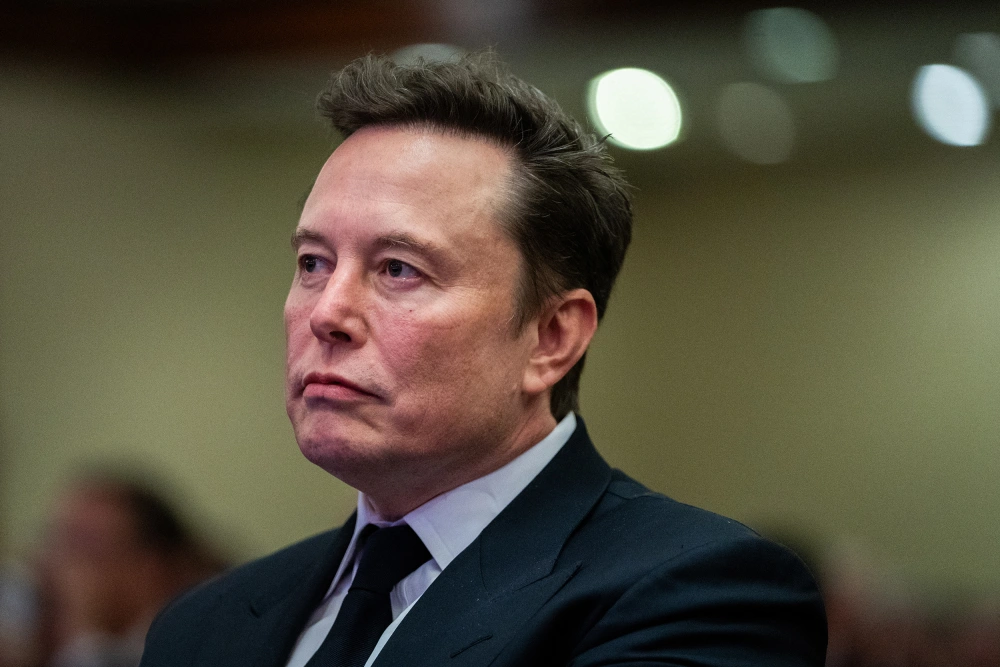Walking well-trodden mountain pathways, eating fresh local food, and learning about the transformative work embedded in the Kasbah’s approach to tourism has now been imparted to our children. We hope, in turn, these experiences will serve to inform their contributions in the world as they continue to grow. Don’t wait, Morocco is on everyone’s bucket list. Growth and change are inevitable.
The post Travel Morocco with teens at the Kasbah du Toubkal’s magical mountain retreat appeared first on Green Prophet.
Elon Musk in Washington
Elon Musk has never been shy about grand declarations and funding Iranian dissidents, but his latest announcement landed with particular force in Washington last week. Standing beside Nvidia CEO Jensen Huang and Saudi Arabia’s communications minister Abdullah Alswaha, Musk revealed plans for a 500-megawatt xAI data center to be built in the Kingdom — a facility nearly twice the size of xAI’s Colossus 1 in Memphis.
“It’s going to be one of the most powerful clusters ever built,” Musk said, adding that the project, developed with HUMAIN AI, represents “a massive leap forward for global computation.” HUMAIN AI, a newcomer created with backing from Saudi Arabia’s Public Investment Fund, fueled by ARAMCO, Saudi’s oil company will anchor the joint venture. As with most of the world’s current AI arms race, the beating heart of the center will be Nvidia chips, which have become the gold standard for training frontier models.
Huang, who has spent the year bouncing between Silicon Valley, Singapore, and the Gulf, announced a separate 100-megawatt data center for Amazon Web Services powered by Nvidia hardware. “This is just the beginning,” he said. “We’re aiming for gigawatt scale. The demand for accelerated computing is rising faster than any of us predicted.”
“Humanoid robots will be the biggest product ever,” Musk said: “Perhaps in the four or five-year time frame, the lowest-cost way to do AI compute will be with solar-powered AI satellites.”
All this unfolded one day after the U.S. and Saudi Arabia unveiled a Memorandum of Understanding on AI, designed to give the Kingdom access to advanced American systems while “protecting U.S. technology from foreign influence,” according to the White House. In diplomatic speak, that means Washington wants to ensure Riyadh remains on the Western tech grid rather than drifting toward Beijing’s orbit.
Related: Is your company investing in Riyadh or Dubai?
But the biggest headlines, unsurprisingly, came from Musk. In a moment of characteristic showmanship, he pitched a future filled with humanoid robots, orbital data centers, and solar-powered AI satellites.
Yet behind the spectacle lies a more grounded story: Saudi Arabia is betting its post-oil future on computation. The Kingdom has land, capital and political will — and it wants to become indispensable to the world’s AI supply chain.
Environmental analysts, however, are asking harder questions. A 500-megawatt data center is effectively a new industrial city. “Where is the clean power coming from?” “If this is fueled by oil or gas, it simply shifts the carbon problem upstream.”
Red Sea pod hotel the Shebara Resort
Saudi officials insist renewable capacity is accelerating. The Kingdom has sunlight in abundance, and giga-scale construction and solar projects are rising across the desert and into the sea. But analysts say the rollout is still far slower than the ambition.
For now, Musk’s partnership signals a deepening alignment between Silicon Valley and Riyadh — and a new chapter in the Middle East’s data-powered future. The satellites and robots may come later. The energy footprint, however, is already here.
The post Musk’s Saudi Mega-Data Center Signals a Desert Arms Race for AI appeared first on Green Prophet.




